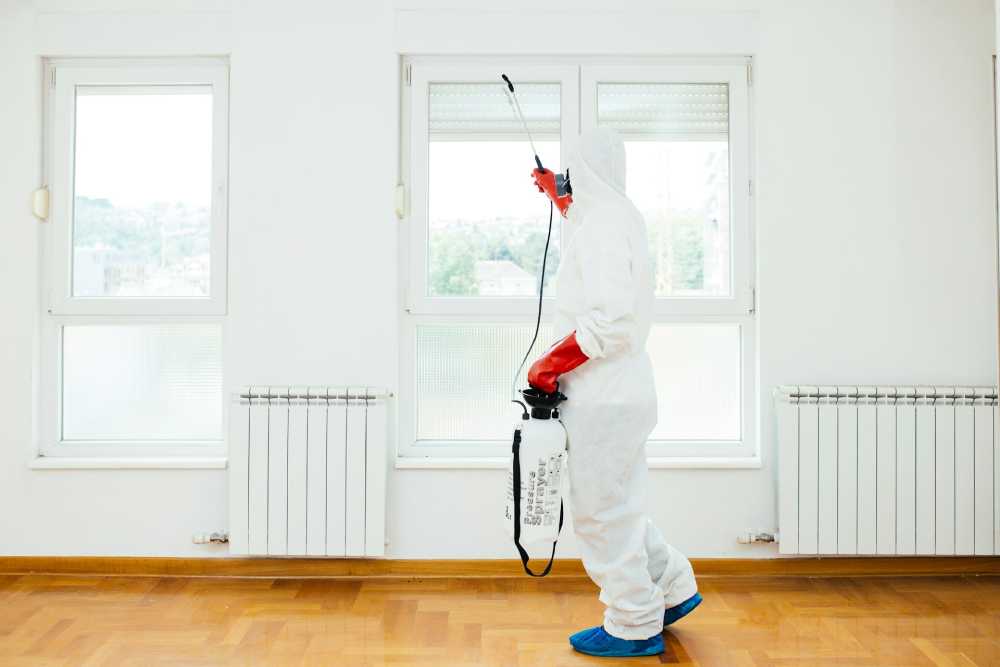Understanding the most common household pests is the first step toward keeping your home pest-free. Each pest requires a unique approach for adequate control, from ants and cockroaches to rodents and termites.
Identifying these pests early can prevent potential damage and health risks. For example, ants can contaminate food sources, cockroaches can trigger allergies and asthma, and termites can cause extensive structural damage.
Knowledge and immediate action are vital in managing infestations for residents in metropolitan areas, like those seeking pest control in Boston. In urban settings, pests can quickly spread from one property to another, making early detection and prompt action critical. You may encounter common pests, including ants invading kitchen areas, cockroaches hiding in dark, moist corners, and rodents seeking shelter indoors.
Contents
Signs of a Pest Infestation
Detecting pest infestation symptoms can help you avoid wasting time, money, or stress. Droppings, unusual smells, damage to your property, and unexplained noises are often indicators of a hidden pest problem.
Look for small piles of sawdust or mud tubes, which can indicate termites or gnaw marks on wires and wooden surfaces, a tell-tale sign of rodent activity. Watch for dead insects or shed skins, which can signal an infestation.
Another sign to watch is spotting live insects in unusual places, such as ants in your pantry or cockroaches in your bathroom. If you notice any of these signs, it’s essential to take swift action to address the infestation before it becomes more severe. Early detection will enable you to implement control measures more effectively and minimize the impact on your home.
Practical Tips to Keep Pests Out
- Seal all cracks and openings in your home’s foundation and walls
- Keep food stored in airtight containers and clean up spills immediately
- Dispose of garbage regularly and keep trash bins tightly covered
- Ensure your home is well-ventilated and dry to avoid mold and moisture, which attract pests
- Periodically inspect and clean kitchen areas where food debris is common
- Make sure screens on windows and doors are intact and repair any damages promptly
To prevent pest entry, install door sweeps and weatherproofing to block gaps under doors. Replace any torn or damaged window screens and maintain window seals. Keeping a tidy home, free of food crumbs and standing water, goes a long way in deterring pests. Outdoors, trim your lawn, remove standing water, and store firewood at least 20 feet from your home.
The Importance of Regular Maintenance
Regular home maintenance plays a crucial role in pest prevention. Cleaning gutters, repairing leaks, and trimming yard vegetation can all help keep pests at bay.
Maintaining your home’s exterior and interior reduces the chances of an infestation. Simple tasks like replacing weather strips on doors and windows and keeping attics and basements dry can deter many common pests.
Additionally, scheduling regular inspections, such as checking for termite damage or identifying potential rodent entry points, can help you avoid any issues. Addressing minor problems before they become significant can save you money and stress in the long run. Preventive measures include caulking gaps around windows and doors and using insect-resistant building materials during renovations.
Natural Pest Control Solutions
Many homeowners prefer natural pest control methods to avoid using chemicals. Some effective natural solutions include using essential oils and diatomaceous earth and planting pest-repelling herbs like basil and mint around your home. Peppermint oil is known to repel spiders, while vinegar can deter ants. These methods can be adequate for mild infestations and as preventive measures.
Diatomaceous earth, a natural powder, can be sprinkled around entry points to dehydrate and kill insects. Similarly, the barrier method, such as placing coffee grounds or cucumber peels around pests’ preferred travel paths, can deter them. Always research and follow safe usage guidelines for any natural remedy to avoid unintended side effects.
When to Use Chemical Treatments
Although they can be helpful, chemical treatments should only be applied sparingly. It’s critical to abide by all safety regulations and consider the effects on your home and surroundings. Pesticides should be used only when necessary in targeted areas, such as cracks and crevices where pests hide. Overusing chemicals can lead to pest resistance and unintended harm to beneficial insects and animals.
When using chemical treatments, always read the label and follow instructions carefully. Consideration should also be given to the possible impact on pets and small children in the home.
In some instances, especially in severe infestations, seeking professional advice to ensure safe and efficient application might be prudent. If you opt for DIY solutions, be cautious of mixing chemicals, as some combinations can be hazardous.
Hiring Professional Pest Control Services
Even with the best intentions, pests can occasionally continue to be an issue. In these cases, hiring a professional pest control service is necessary. They have the expertise and tools to handle severe infestations safely and effectively. Professionals can also provide ongoing monitoring and preventive measures to ensure pests don’t return.
Professional services come equipped with advanced techniques and specialized products that are often more effective than over-the-counter solutions. They can tailor their approach based on the severity of the pest type and the infestation. Purchasing professional pest control protects your house in the long run and helps solve problems.
Conclusion
You can keep your living space cozy and healthful by being proactive about pest prevention. Maintaining a pest-free home requires routine upkeep, cleanliness, and knowing when to call a professional. Implement these tips and strategies to safeguard your home against the nuisance and potential damage caused by pests.





